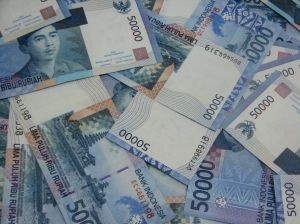
Bank Indonesia eyeing to increase US dollar liquidity
Bank Indonesia is introducing foreign currency-denominated term deposits to stabilize the rupiah which had declined by 3.9% year-to-date.
The move by the Indonesia central bank aims to entice exporters to repatriate their foreign currencies onshore. Issued in 7-day, 14-day and 1-month tenors in competitive rates, these US dollar term deposits would help ensure US dollar liquidity in the domestic financial system.
Here's more from the OSK-DMG:
In a news conference, Bank Indonesia Governor Darmin Nasution announced that it would be introducing foreign currency-denominated term deposits of varying tenors in two weeks. Though it was not specified in the press release, these term deposits are likely to be denominated in US dollars. According to press reports, the tenors would be 7-day, 14-day and 1-month. The central bank is confident that these US dollar term deposits would help ensure sufficient US dollar liquidity in the domestic financial system and help to stabilize the rupiah, which had so far declined 1.2% against the US dollar to 9,447 since the 28 May 2012 close and by 3.9% year-to-date.
By introducing these term deposits at competitive rates, the BI hopes to entice exporters who are holding their foreign currency revenues offshore to repatriate them onshore. The success of this new measure to ensure greater US dollar liquidity will depend on whether exporters not just on the rate offered but also on assurances that capital controls would not be introduced. In addition, the global environment would also play an important role as it will determine the risk appetite of foreign investors for riskier assets.
The recent rupiah volatility could have been largely the result of a sell-off by investors on the back of global risk aversion and to realize profits from Indonesian assets. It is likely due to a change in the fundamentals of the Indonesian economy, which remains relatively healthy.
The economy is still poised to grow above 6.0% this year, and foreign reserves remain relatively healthy at $116.4 billion. As well, government debt has also been pared down to below 24%, while the deficit has been kept below the legal limit of 3% of GDP. Nevertheless, there are weaknesses in the Indonesian economy that could weigh on the rupiah, particularly the softness in the BoP, policy inconsistencies and growing uncertainty concerning inflation. It is currently expected the rupiah will hover around the 9,325 level against the US dollar by end-2Q which may have calmer markets by then.
























 Advertise
Advertise






